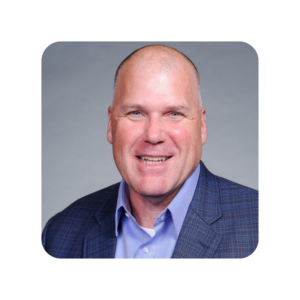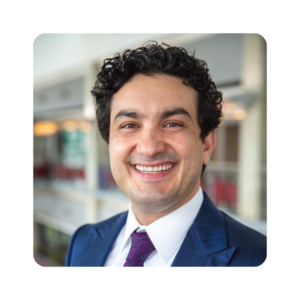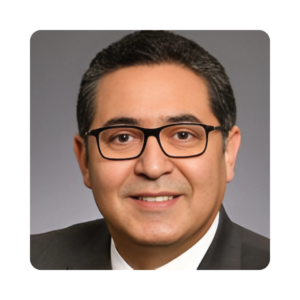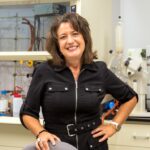From academic research and clinical care to biomanufacturing and workforce development, the event will explore the full scope of Indiana’s capabilities in the fight against cancer. These discussions will focus on Indiana’s growing leadership in cancer innovation, spotlighting how our state is advancing prevention, diagnosis, treatment, and outcomes through cross-sector collaboration and investment.
Radiopharmaceuticals will be an important part of the conversation, particularly as they relate to manufacturing infrastructure, specialized talent, and our unique logistics advantages, highlighting the broader innovation landscape that is positioning Indiana as a national hub for cancer care advancement.
Our Life Sciences Workforce: Success Fuels Success
Over the last century – and especially over the last two decades – Indiana has become synonymous with life sciences. Today, our state is home to more than 3,100 life sciences establishments, employing 67,000+ Hoosiers working to advance treatments for Alzheimer’s and obesity, state-of-the-art orthopedics, nuclear medicine, and manufacturing.
As more establishments look to Indiana for business opportunities – they’re also discovering a highly-skilled, capable workforce. And the best is yet to come – as demonstrated at our recent FrameWORX at 16 Tech. Indiana’s life sciences ecosystem came together for an engaging conversation about current efforts to expand our training and workforce pathways and talent pipeline.
Our recent federal Tech Hub designation will provide Indiana with a $51 million grant for developing workforce and training initiatives, governance, and bringing products to market, helping position Indiana as a global leader in biotech.
“It’s an incredible opportunity for Central Indiana,” said Melina Kennedy, CEO of Central Indiana Corporate Partnership, during her discussion session. “We are focused on biomanufacturing as one of our four key pillars and will leverage our current strengths to grow this important sector in Indiana.”
The grant was made possible by the Regional Technology and Innovation Hubs program stemming from the CHIPS and Science Act of 2022. Heartland BioWorks was selected as one of only 12 Tech Hubs nationwide to receive funding to help drive improvements and expansion into the environment.
Ivy Tech recently opened a new biopharmaceutical science and technology lab with more than 4,000 square feet of equipment and technology that simulates the working environment of biotechnology manufacturing facilities, demonstrating how this could work.
The facility is located roughly ten minutes from Eli Lilly and Company’s Indianapolis manufacturing facility, which has supported the project and has a vested interest in its success.
And at Purdue – which recently launched its new Indianapolis campus – leaders are continuing to focus on helping Indiana meet the manufacturing needs of the broader life sciences industry.
The approach is working. Wade Franchville, founder and managing director of Harba Solutions, Inc., said Indiana’s labor market is “booming” and that his team alone is recruiting about 170 open life sciences positions across the Hoosier state.
And with the endless competition for talent in mind, he reminded the FrameWORX audience: “Boston researches things; Indiana makes things.” The tech hub grant and designation will help build upon that legacy.
Presenting Sponsor:

A Glimpse into the Future of Nuclear Medicine
Our FrameWORX series this year has been a fascinating journey through the pillars of our 10-year Strategy for Indiana’s life sciences sector. Our final event of the year – held in early December at the Indiana Biosciences Research Institute – can feel like a big gulp of science. But no area captures Indiana’s life sciences growth like nuclear medicine.
Indiana leads the nation in conventional pharmaceutical exports, and at least 14 life sciences companies today are developing and manufacturing radiopharmaceuticals – propped by our state’s central location and logistics expertise. Decades of life sciences leadership are complemented by the logistics required to produce treatments and diagnostics that leave little room for shelf life. Radioactive materials degrade quickly, and each dose must reach the intended patient within 3 to 5 days from production. Indiana’s FedEx hub, the second largest in the world, is a major advantage – as is the fact Central Indiana is a 12-hour drive from approximately half the U.S.
Nuclear medicine is revolutionizing the way we diagnose and treat diseases, offering innovative solutions that are improving patient outcomes and pushing the boundaries of modern healthcare. Indiana, with its renowned research institutions and strategic partnerships, is at the forefront of this movement. Additionally, Indiana’s central location, combined with its robust transportation infrastructure, positions the state as an ideal hub for the production and delivery of these critical therapies.
Indiana is on the leading edge of a booming technology. Nuclear medicine is a $6 billion industry in the U.S. and is expected to triple in the next 7 years. Heartland BioWorks, designated a regional technology and innovation hub by the federal Economic Development Administration, has established BioTrain, an institute designed to prepare talent for entry-level biomanufacturing roles. BioTrain will be located at the 16 Tech Innovation District. And just north of Indianapolis, Purdue has the nation’s largest nuclear medicine pharmacy program in the country.
As demonstrated at our FrameWORX, radiopharmaceuticals are used in nuclear medicine imaging and procedures – particularly for prostate and other cancers. They are administered systemically, but their biomolecular properties cause them to localize in specific tissues. Years ago, doctor might use a sledgehammer approach to treatment – in other words, diagnose and treat a large swath of the body to address diseases that were challenging to pinpoint. Radiopharmaceuticals are more like using an arrow and bull’s eye. Precision leads to less invasiveness and more precise treatments for patients.
Researchers and business leaders from IU School of Medicine, Purdue, life sciences companies, and the patient advocacy world drove a robust discussion about the future of radiopharmaceuticals. Perhaps no one said it better than Geoff Towle, a vice president and senior general manager at Novartis. Geoff joined us from his New Jersey headquarters because his company has built a large radiopharmaceutical manufacturing plant in Indianapolis.
“This feels like reimagining medicine,” he said. “Nuclear medicine is incredibly effective and exquisitely targeted. Patients are waiting for this and that’s what we need to focus on.”































